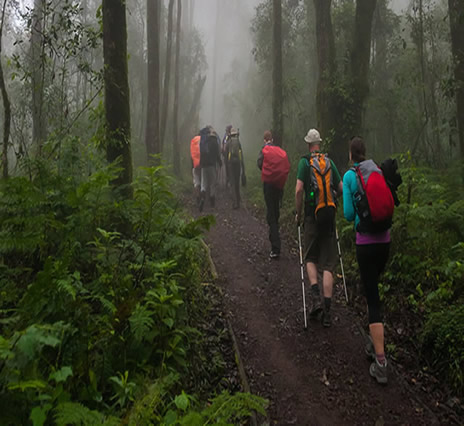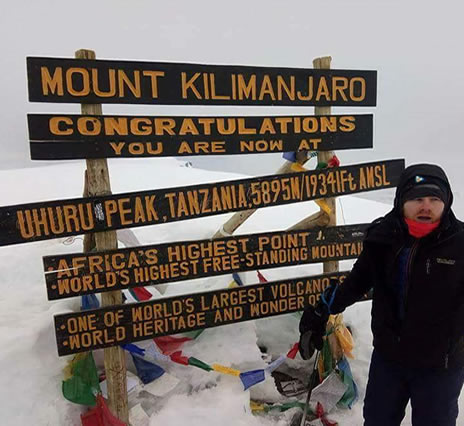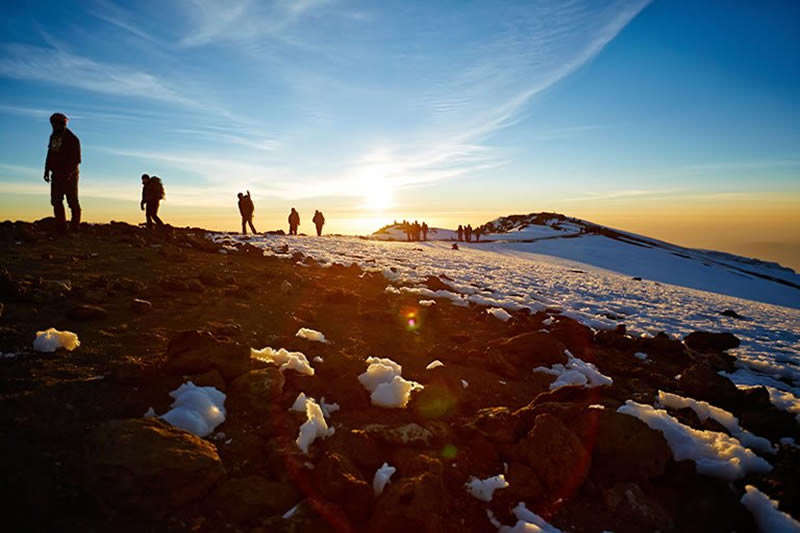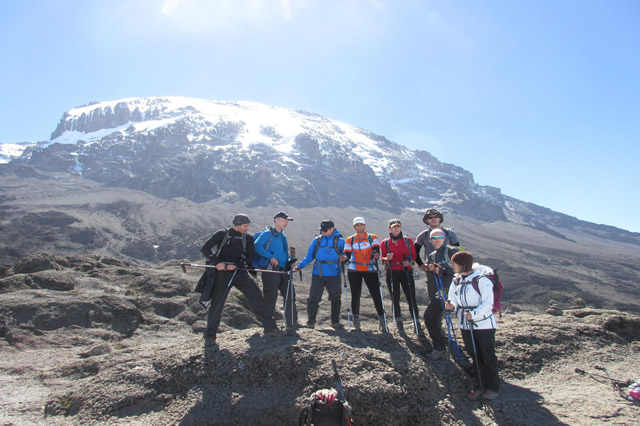
7 DAYS MOUNT KILIMANJARO - SHIRA ROUTE ITINERARY
Day 0 : Pickup to Airport
You will be picked up from airport. From there you will go to the hotel in Moshi for an orientation on your trek. Your guides will be there to provide you with details on your trek and will also check your trekking gears.
Day 1: Londrossi Gate (2,100m) – River Camp (3,050m)
- Distance: 7 km
- Trekking time: 4 hours
- Altitude gain: 950 meters
You will head out from Moshi or Arusha making the long drive through West Kilimanjaro until you reach the gate. This takes about 2-3 hours. At this time you will pass through forest areas and small villages. Colobus Monkeys can often be seen in the trees above and
baboons run across the road. Registration will be done at the gate and you will have a bit of a wait while the porter's bags get weighed and all the paperwork is complete. This route is unique in that it starts on a 4-wheel drive road, often used by the emergency rescue vehicles. Other vehicles can drive up to the morum barrier at the morum hill, at a height of about 3,500m. If you are doing the full route by foot, you will head out along the track up towards the camp. You will walk through the forest following a river until you transition into moorland. This hike usually takes about 6 hours including many breaks but can also be shorter, depending on where you start your hike. The car can drive you any distance you choose but must stop at the barrier. By the time you reach the first camp the porters will have all the tents set up and dinner preparation will be underway.
Take a 4WD vehicle all the way to the morum barrier and skip the first camp. This is only recommended if people are coming from a place elevated above sea level or who have completed climbs up Mt. Meru/spent time in Moshi or surrounding areas of the mountain
such as Machame or Marangu. Even this altitude can affect people as you go up quite high.
Day 2: River Camp (3,050m) – Shira Hut (3,850m) via the Shira Cathedral (3,720m)
- Distance: 12 km
- Trekking time: 6-8 hours
- Altitude gain: 800 meters
When it is time to wake up the trekking crew will come around with an offer of different hot drinks. A bowl of hot water will also be left outside of the opening of your tent so you can wash your hands and face and brush your teeth. A hot breakfast will be ready for you in the mess tent. If you leave your water bottles out, the porters and guides will fill them with fresh, purified water while you eat. This will be done at most meal times to make sure you always have enough water to drink! On this day you climb a bit of a slope up to the morum barrier where half of the climbers start their treks. This is the start of the Shira plateau, a mostly flat area. After two hours you will reach the junction with the Lemosho route, passing the Simba cave campsite and Fischer campsite after that before arriving at your final destination of the Shira Hut.
Day 3: Shira Hut (3,850m) – Lava Tower (4,600m) – Barranco Camp (3,985m)
- Distance: 9 km + ~ 3 km to Lava Tower and down
- Trekking time: 6-8 hours
- Altitude gain: 135m (+790m up to Lava Tower)
OPTION – EXTRA NIGHT (Shira – Moir – Barranco)
On this day there are a few different options that you can take. At first everyone will follow the same path, winding gently uphill through the alpine dessert. For those who do not wish to climb up to the Lava Tower you can head directly to the Barranco Camp. The Lava Tower hike is recommended as it gives you a great opportunity to experience the higher altitudes while still being able to sleep at a low altitude. If you choose to climb up to the Lava tower, you will stop there for a hot lunch and a bit of a rest. The last part of the climb is a bit steep so climbers usually welcome the rest! After lunch you will descend into the valley towards the Barranco Camp. If you want to add an extra night to your climb, you can choose to camp overnight at the Lava tower instead of using it as just a lunch spot. Since the altitude is quite high we do recommend sleeping lower.
You can turn off the path and spend an extra night at the Moir Huts. This is recommended for those who want more time to adjust to the altitude of the mountain. The Mour Huts are at 4,140m and are located approximately 30 minutes off the main trail. If you choose to stay here, you will take a walk to the lent hills and surrounding area, taking you to 4,700m. This is example of the "climb high, sleep low" pattern you will see on the mountain, which is better for your health and chances of a successful summit.
Day 4: Barranco Camp (3,950m) – Karanga Camp (4,040m)
- Distance: 5.5 km
- Trekking time: 4-5 hours
- Altitude gain: 55 meters
OPTION – SHORTER CLIMB
Today is a favourite among most climbers on this route and is the day that you face the Barranco wall or "breakfast wall". It is not a normal hike as you "scale" the wall but don't be nervous as no special equipment is needed and it is easy to do. You can simply use your hands to steady yourself along the wall. The guides are there to help you along the way as well. You will pass across streams and eventually cross over the Karanga River. After another short climb you will be at the Karanga Valley Camp for the night.
It is possible to shorten your climb by skipping the Karanga Camp and going directly from Barranco to Barafu.
Day 5: Karanga Camp (4,040m) – Barafu Camp (4,680m)
- Distance: 3.5 km
- Trekking time: 4-5 hours
- Altitude gain: 640 meters
This day is quite short compared to the others, which is an advantage, as you will be attempting your summit that night! The path gets increasingly steeper as you get closer to the Barafu Camp. You will arrive in time for a hot lunch and have the rest of the day to rest
and relax before the summit push. This camp is interesting as it is on an exposed ridge. It is a good thing to familiarize yourself with the surroundings in time for nightfall so you don't make any missteps!
Day 6: Barafu Camp (4,680)m to Uhuru Peak (5,845m) via Stella Point (5,750m) down to Mweka Camp (3,100m)
- Distance: 5 km (ascent) + 10k m (descent)
- Trekking time: 5-8 hours on the way up + 5-6 hours on the way down
- Altitude gain:
- Ascent 1,215 m (Uhuru Peak)
- Descend 2,745 meters
This is summit day/night! Climbers will wake up just before or close to midnight to prepare for the final ascent to the summit, which is done in the dark. "Breakfast" will be already prepared. Depending on how many climbers there are, some of the porters will join you and the guides on the summit attempt to provide extra support if needed. The walking pace is very slow, with climbers focused on putting one foot in front of the other, following the trail of headlamps you see before you. Climbers often feel very sleepy at this time but just keep going forward! The path you take is a switchback but as you keep going up you do start to feel more of the incline. The aim is to reach Stella point, your first checkpoint, at or just after sunrise. At this point climbers can take a bit more of an extended break and enjoy the beautiful views from the top! Uhuru peak, the final summit, is about a 1-2 hour walk away on a more flat path with very little to no incline. Climbers can experience difficulty breathing on this portion even though it is more flat. Elevation is at xx Stella Point compared to xx at Uhuru Peak. After taking pictures at the summit sign, you will descend back down to camp for a short break and some food. The path down from the summit is loose gravel. The guides and porters are more than happy to help you down and often feel that if you let yourself go a bit loose you can usually slide/walk down at a faster pace than if you are nervous and trying to go alone. Walking poles can come in handy for this part. The descent back to the camp takes about 4 hours. After your rest, you will start to descend towards the Mweka camp where you will stay for the night.
Day 7: Mweka Camp (3,100m) descend to Mweka Gate (1,800m)
- Distance: 13 km
- Trekking time: 5-6 hours
- Descend: 1,300 meters
After breakfast you will head down the final part of the mountain to the Mweka gate to receive your certificate and head back to Moshi for some well-deserved rest and a hot shower!
Included in the packages;
- Private transport from the hotel to the Park s gate (starting point for the climb), and transport back to the hotel after the climb
- All National Park entry fees
- All camping fees
- 2 night's hotel the night before and the night after the climb, with breakfast included
- Kilimanjaro National Park certificate for your successful summit attempt
- Qualified medical guides
- Breakfast, lunch and dinner, as well as hot drinks on the mountain
- Salaries for Guides, cook and porters.
- Rescue fees (Kilimanjaro Park rescue team fees)
- Government taxes
- Pickup and drop off to Airport
- Evacuation services
- Hut fees [ Marangu route }
- Friendly and competent Trained Mountain Guides, assistant guides, porters and professional cooks.
- 3 full fresh meals daily. We provide fresh food on the mountain in plentiful and well prepared by skilled professional cooks(we also consider your choice of food that you would prefer -Vegetarian and Non Vegetarian). Menu especially designed for climbers.
- Hot drinks on the mountain and Hot water for washing will be provide everyday on the mountain.
- Quality specious tents, sleeping mats, camping tables ,camping chairs and Mess/Dining Tent.(Not applicable on the Marangu route as accommodation is in A-frame huts)
- Supplementary Portable Oxygen and Complete First Aid Kit (used in case of emergency only)
- Pulse oxy-meter carried by all chief guides
- 3-4 liters of mineral/treated water (per Climber) provided daily during the climb
***Portable toilet available at an additional cost (There are public toilets on the mountain)
NOT INCLUDED IN OUR PACKAGES PRICES
• Items of a personal nature
• Tips for guides, porters and cook (average tip is anything from US$250 to US$ 350 per hiker - depending on number of days / how many hikers in the group and route chosen)
• Personal Hiking/Trekking gears (Some Gears are available for Rent)
• Snacks, personal medicine
• Meals, drinks and snacks not specified in hotelSafety:
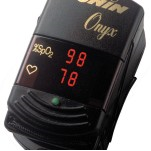
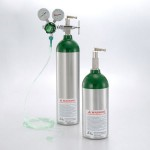
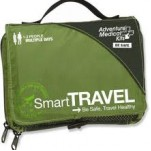
Success is what we want during our trip. We are prepared for any urgent situation and also have in place a complete evacuation procedure in case of altitude sickness. We carry first aid supplies, supplement summit oxygen and Pulse Oximeters).
BOOKING NOW
THANK YOU AND YOU ARE MOST WELCOME

